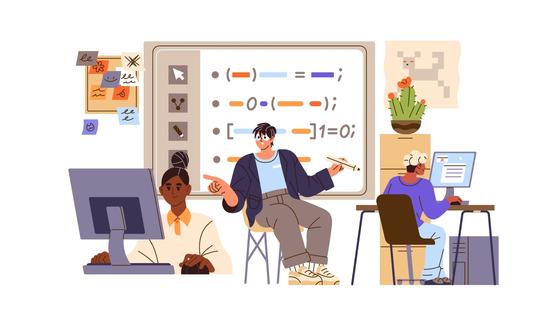UK Schoolchildren Learn to Create Video Games, Opening Doors to the World of Computer Science
An innovative educational project is gaining momentum in UK primary schools, aiming to change attitudes towards video games.

Sixth-grade students at Prince Avenue Academy in Westcliff-on-Sea, Essex, under the guidance of teacher Jude Nzemeke, are mastering the creation of their own applications and mini-games. This pilot project, implemented in collaboration with Digital Schoolhouse, uses a game-based approach to demonstrate how exciting video games can serve as "gateways to the world of computer science," bridging the gap between primary and secondary education and instilling valuable computational skills in young minds.
According to Nzemeke, who is also the head of the computer science department at Southend High School for Boys, the traditional view of video games as a waste of time is gradually giving way to an understanding of their educational potential. "People don't realize that games open up a potential path to computer science because there is a lot of computational thinking behind games," he notes. Using video games in education not only introduces children to the basics of programming but also develops important skills such as strategic thinking, problem-solving, creativity, communication, and teamwork. Shahneila Saeed, head of education at Digital Schoolhouse, emphasizes that as computer science has been part of the curriculum since 2014, integrating game mechanics significantly increases student engagement and performance.
Students have enthusiastically embraced the classes, describing the experience as "really fun and exciting." This approach allows children to encounter technologies from an early age, including those yet to be created, preparing them for a future filled with digital innovation. Using children's favorite games in the educational process not only makes learning more effective but also demonstrates how serious professional skills and a passion for science can grow from simple entertainment.












 Test. Check Your Social Media Dependency Level!
Test. Check Your Social Media Dependency Level!
 Test: What Business is Right For You?
Test: What Business is Right For You?
 “I’m Here for the Long Haul”: When Loyalty to a Company Becomes Toxic
“I’m Here for the Long Haul”: When Loyalty to a Company Becomes Toxic
 Test: How Prone Are You to Abusive Behavior as a Manager?
Test: How Prone Are You to Abusive Behavior as a Manager?
 Test. What superpower would you possess if you were a superhero?
Test. What superpower would you possess if you were a superhero?
 Test. What Should You Let Go of Before Winter Ends?
Test. What Should You Let Go of Before Winter Ends?
